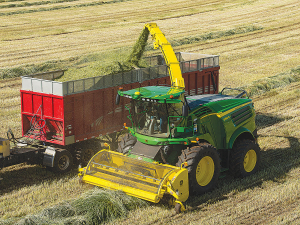A recent round of countrywide roadshows, organised by the Rural Contractors of New Zealand (RCNZ), set out to brief members on the challenges that lie ahead in these volatile times – as well as discuss strategies to deal with these issues.
Much of the impetus has been driven by the massive increases in inputs such a fuel, seed and fertiliser – all three a staple of most contractors’ businesses.
Working in conjunction with Federated Farmers, the RCNZ has contracted NZX to deliver cost reference points for keys inputs for both organisations’ members. This will allow contractors to look at operating costs in more detail.
RCNZ chief executive Andrew Olsen says this information will be available to members on the organisation’s website. Initially, it will allow them to track fuel and fertiliser costs, with other key inputs added as time goes on.
“This will help with planning, in the knowledge that our members are working with meaningful independent data, which will be updated regularly and used as a discussion point with customers.”
Also speaking at the roadshows was NZX head of insights Julia Jones, who says contractors are in a position where change is causing uncertainty. She cautioned the audience not to become overwhelmed by what appears to be major changes in the sector and the way they may have to work around these.
Jones expanded further, by encouraging contractors to remember what they really liked about their jobs. She pointed to a range of things – such as job flexibility, the love of ‘heavy metal disease’, job satisfaction and the wide range of people they worked with or met each day.
the need for contractors to respond to issues that arose, which couldn’t be predicted and prioritising three key areas.
“The first should be to look after yourself,” Jones says. “Remember the safety announcement they use on aeroplanes – if the cabin pressure drops, oxygen masks will appear – put your own mask on first before helping others.”
Jones says the second priority should be to have strategies in place for alternative revenue streams should routine work diminish or dry up, citing the example of foot and mouth arriving in NZ, which would immediately curtail movement around the country.
She added that the third area for attention is to: ‘know your numbers’.
“What it costs to undertake and complete a job and what price the job needs to be invoiced to the customer at.”
Jones advised that it is imperative to keep talking to customers, letting them know what was happening in the industry – particularly in the areas of major cost increases in key inputs they were being contracted to deliver.
“Your customers need to understand that you have to charge a price that reflects your costs and allows you to make a reasonable margin,” she explained. “They all know that the world needs to be fed, no matter what global tensions are occurring or evolving.”
Waikato Federated Farmers arable chair, Keith Holmes, reinforced Jones’ comments.
“Farmers and rural contractors need one another, but in these volatile times don’t put yourself at financial risk by having a traditional handshake deal,” he advised.
“Get things in writing, by making sure that there is a proper, legal and binding contract in place to protect both parties.”











